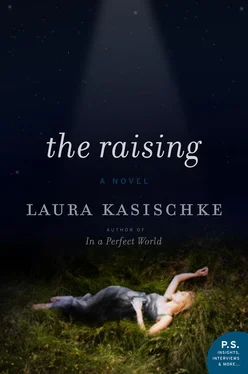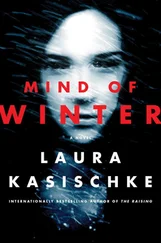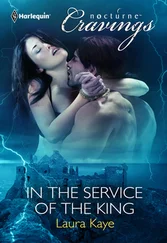She’d have thought, perhaps, no fool like an old fool?
Or would it have been something harsher? Much harsher.
Now, she thought, imagining looking down at herself from the lofty heights she’d once occupied, she was one of them. The fallen.
She was so lost to these thoughts that, as she approached Starbucks and glimpsed herself in the plate glass window, she was surprised to see her own reflection. She’d expected, she realized, to see herself as a warted hag, a specter, a creature —lecherous and leering, and that much more repulsive because, although she looked sexless, she wasn’t.
But that’s not how she looked.
In the window, she looked frantic, even to herself. And pitiable. Harmless. Maybe sad. Her hair was messed but shining in the dim November sunlight. A man in a black suit and red tie looked her over appreciatively as he held the door for her. She did not, it seemed, appear to be a monster to him. To him, she looked like the reflection in the plate glass window.
But there was no mistaking the horror on Josie Reilly’s face as she turned at the counter, holding her white cup, and saw Shelly walking through the door.
Mira had never shared anything about her personal problems with a colleague before. Even in graduate school when her fellow students regularly wept late into the night in one another’s arms over their breakups and their breakdowns, Mira had kept a close check on what she told others about herself.
One of her best friends, Tessa, another doctoral candidate in anthropology, had told Mira about the years of incest abuse she’d endured as a child by a much older half-brother, and then had reacted with bitterness that seemed to border on rage when Mira told her, many years into their friendship, about her mother’s death.
“You never told me your mother was dead.”
“She died years ago,” Mira tried to explain. “I was an undergraduate. You and I hadn’t met.”
“But we’ve discussed your mother on about five hundred occasions,” Tessa had said as Mira recognized in her friend’s eyes a dawning apprehension, a withdrawal, a dismissal that heralded the end of their friendship, “and you never once indicated that your parents weren’t both still happy and healthy and living in Ohio. I told you all about my father’s death. It seems like that might have been a good time to mention that you, too, had a parent who’d died.”
Mira hadn’t intended to shrug. She knew that a shrug indicated that either it didn’t matter or she couldn’t comprehend the big fuss. But she’d felt herself doing it anyway—and, as she shrugged, she felt as if something shawl-like (her friendship with Tessa?) was slipping off her shoulders, discarded behind her.
So it was that much more surprising to find herself now weeping into her hands as Jeff Blackhawk sat across from her, watching, rubbing his knees with his palms. She could not suppress the sobs.
Truly, Mira had meant to tell him only that she was in a hurry because she had to rent a car, that her husband had theirs, that she was going to drive up north to get her children from their grandmother. But the second she uttered their names ( Andy, Matty ) her lungs had seemed to fill instantly with tears, and she’d found herself choking, gasping, spluttering. Finally, after what must have seemed to him to be an alarming amount of time, Jeff said, “Mira,” the way you might call a dog that was running toward the road, and she looked up, and the expression of doomed embarrassment on his face snapped her back.
Mira turned around quickly in her chair and grabbed a handful of tissues from the box on her desk, and hurriedly began to wipe her eyes and nose, her cheeks, her lips. God only knew what she must look like, she thought, or what the condition of her eye makeup might be, but she finally managed to take a deep, trembling breath, and speak.
“Jeff,” she said. “I’m so, so sorry. I haven’t slept and—”
He waved his hand as if to clear the air of smoke or tear gas. “No,” he said. “You don’t have to apologize, but I’d like to know what I can do to help. Certainly you’re not in any shape to drive up north, are you? Let me call someone for you. Or, I don’t really have anything to do until I teach on Thursday, except read bad student poetry. I could take you in my car. I like kids. I’d like to meet yours.”
“Oh, that’s so—” Mira felt the shame of her relief in that moment like an implosion. “But I—”
“Just let me, okay, Mira. They’re predicting the first snowfall of the year today. Or tonight. It might even be a big one. The roads’ll be slippery, and in your condition?” He held up his hands at the obviousness. “You owe it to your kids not to get killed on the road. Let me—”
“Okay,” she said.
“Who is this?” Craig asked. His hand was shaking, but he was managing to hold the phone to his ear. The clock on his dresser said 12:00. Was it midnight? No: The sun was shining weakly outside. It had to be noon. He’d set his alarm for 9:00 a.m., and he remembered it bleating for him to wake up, remembered hearing Perry close the front door behind him as he left for his early class, but then he must have turned it off, gone back to sleep.
There was no answer on the other end of the line.
“Who is this?” Craig asked again. He could hear breathing. He listened. He sat up. He put his free hand to his temple and rubbed it. He was trying not to say anything else, just listen, but then, despite himself, under his breath, he asked, “Nicole? Is it you?”
There was a high crazy scream of laughter then:
“No, you idiot! This is Alice. Did you forget about Alice ?”
And then the phone went dead in his hand, and Craig, heart pounding, was out of bed, bolting through the apartment, into the hallway, and the door was slamming, locked, behind him.
The look on Josie’s face, standing in front of the Starbucks counter (slender fingers wrapped around a white paper cup, just turning around) froze Shelly in the threshold, holding the door open with one hand, clutching her shoulder bag to her hip with the other. There was a rush of cold air around her ankles, and it seemed that, in addition to Josie, everyone in the café had turned at that moment to look at her, to see where the draft had come from, to scowl at her for holding the door open. (When had it gotten so cold? Shelly had walked all the way here from her house in a thin dress. Was the dampness she felt on her neck that of melting snow?)
A woman with a stroller pushed past, and after she’d managed to squeeze by Shelly with her baby and her contraption and her diaper bag, she turned back around and nodded at the door. “Better shut that,” she said. There was such gentleness in her tone that Shelly looked at the woman, trying to comprehend not what she’d said but the way she’d said it. “The door,” the woman said, nodding at it again. “It’s gotten cold out.”
Shelly stepped all the way into the coffee shop and let the door swing shut behind her. By then, Josie was on the other side of the room, putting a lid on her cup, glancing furtively around her, and Shelly, despite the warnings of the university bureaucrat, was approaching her, moving her mouth, saying the girl’s name loudly enough that other people were turning at their tables to look.
Josie started to back away, but Shelly was ready for it, and reached out, took hold of the slender arm (bare, despite the cold: Josie was wearing a pair of faded jeans with holes in the knees and a little silky black top, a cashmere sweater wrapped casually around her waist, like an afterthought)—and held on.
Читать дальше












